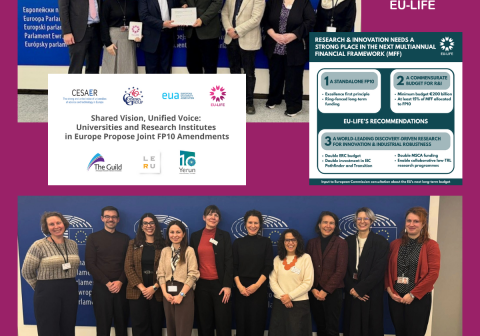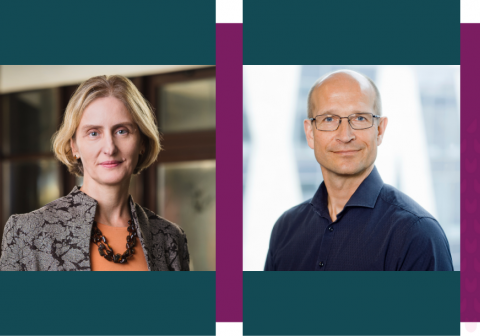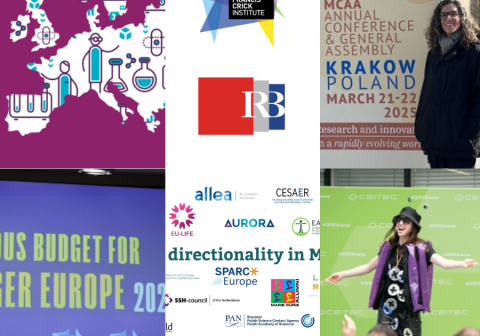EU-LIFE blog: Reflections on the MCAA Conference 2025
By Iris Uribesalgo, EU-LIFE Policy Officer
This past week, I had the pleasure of attending the Marie Curie Alumni Association (MCAA) Annual Conference, held in the historic city of Krakow, Poland. As the flagship gathering of the MCAA community, it brought together science policy advocates, representatives from the Marie Sklodowska-Curie Actions (MSCA) Unit and the European Executive Agency (REA), industry professionals, research managers, and researchers from across Europe and beyond.
The event was filled with enriching conversations around relevant topics for the Research and Innovation (R&I) community and a shared commitment to strengthening the European research ecosystem. Many of the themes of this year’s MCAA conference strongly resonate with EU-LIFE’s mission, and it was an unvaluable opportunity to share insights with colleagues from the whole community.
Here are a few highlights and personal reflections about the conference.
Europe's Future: Strengthening research, innovation and scientific leadership
The high-level panel members of the first plenary session — Maria Leptin, Paweł Rowiński, Manuel Heitor, and Moniek Tromp — discussed the future of Europe’s R&I ecosystem in a rapidly changing world. EU-LIFE has consistently emphasized that scientific research is a strategic necessity for resilience and competitiveness in Europe, with 5 key actions that must be prioritized to empower research in this role, including maintaining and strengthening the European Research Council (ERC) and the MSCA programme as key instruments to attract, develop and retain talent.
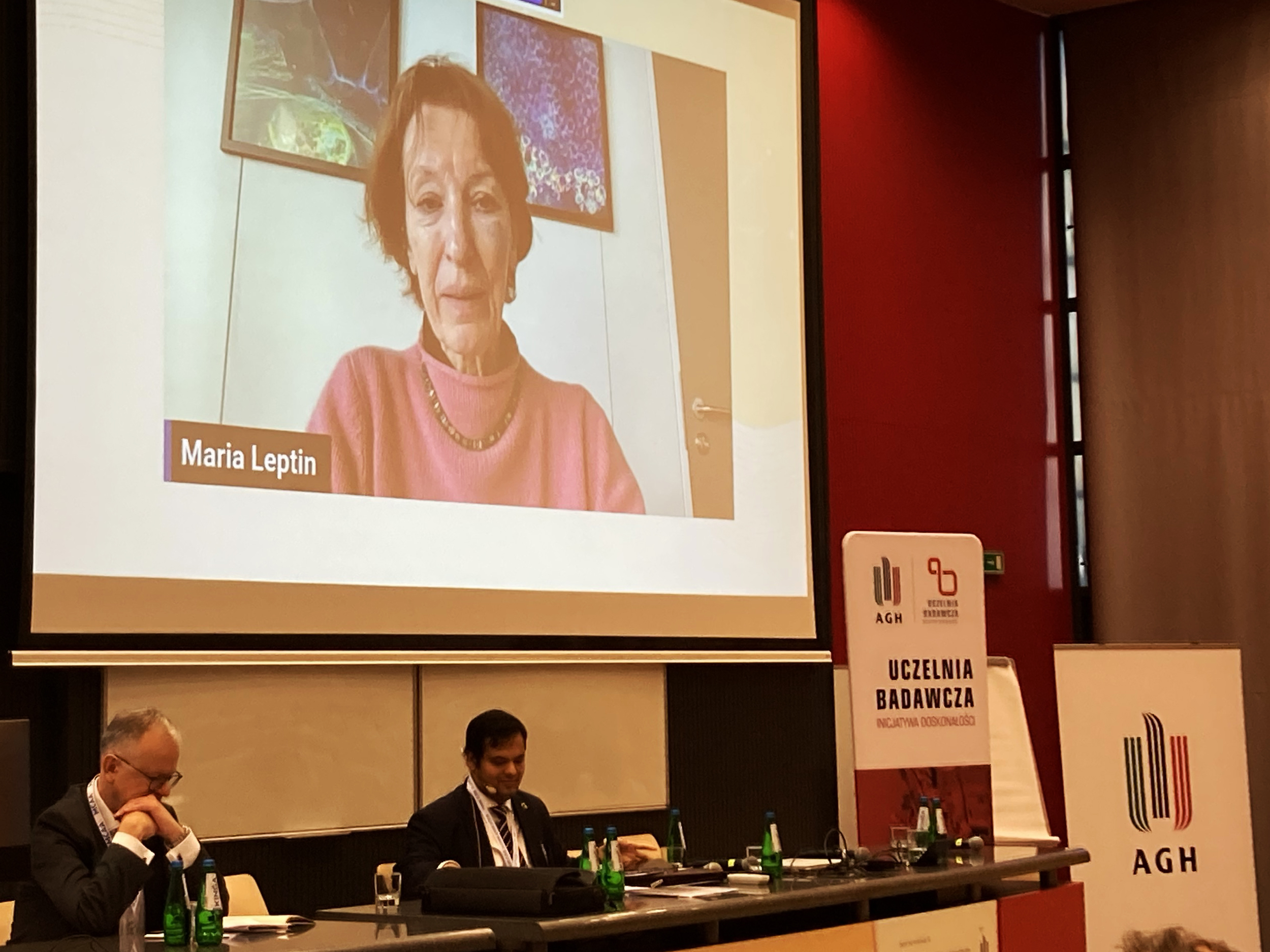
Celebrating supervision: shining a light on the revised guidelines
The second plenary session unveiled the recently updated MSCA Supervision Guidelines, presented by policy officers Senem Sanal-Erginel and Annelies Van de Ven from the MSCA Unit at the European Commission. This was another important moment highly aligned with EU-LIFE’s values and work on research careers. Good supervisory practices are central to researcher well-being and career development. The effort taken by the MSCA Unit to update the guidelines in consultation with the research community shows their commitment towards truly strengthening researcher careers and supporting cultural change.
Open science practices for the reform of research assessment
With relevant contributions from Karen Stroobants, James Morris and Helen Clare, and with Brian Cahill as moderator, the discussion explored the shift away from narrow quantitative metrics towards broader, more responsible evaluation frameworks that include open science practices — a driver for both quality and equality. I really appreciated that the rapporteur Pradeep Eranti was introduced and given the floor for the final remarks. Walking the talk towards recognition! It was an inspiring session that prompted a fruitful discussion.
This is a vital conversation. Our member institutes have long supported the research assessment reform, advocating for systems that value collaboration, openness, and societal contribution alongside academic outputs. The challenge of implementation of harmonised practices across Europe and globally is still present, but its benefits are supported by a growing mass of scientific evidence and policy frameworks. To bring about real change, it is key that the research community is involved in the discussion and that institutional leadership supports truly transformative reforms.
Research managers led sessions on environmental sustainability and the power of collaboration across disciplines
Research managers play a pivotal role in driving excellent science. The MCAA Research Managers Working Group (MCAA RM WG), which I am part of, took the lead and organised two timely sessions where project managers in collaborative networks have a lot to say (and to steer success).
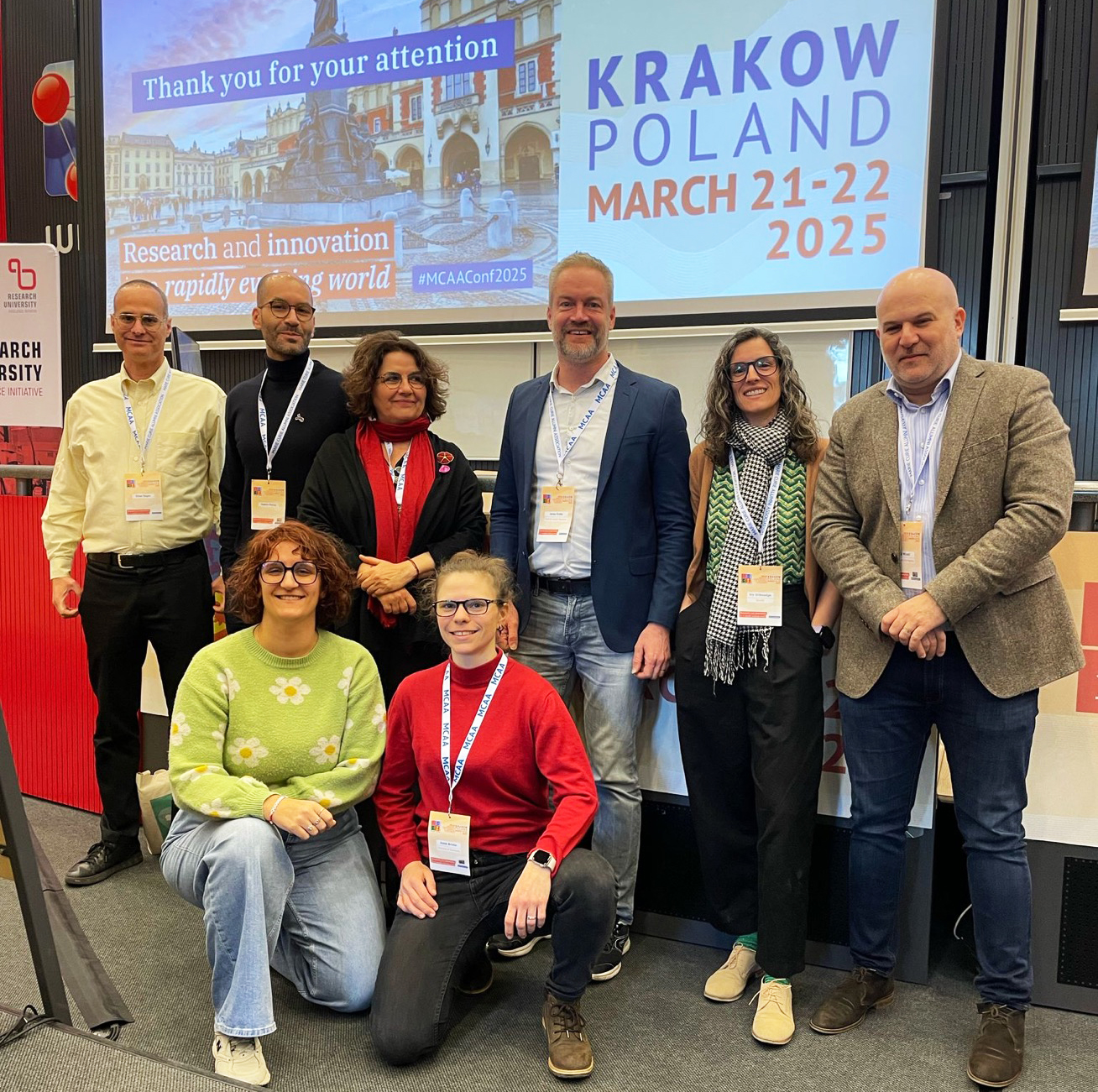
The first session, moderated by Irene Arrata, focused on the intersection of climate responsibility and project implementation, with a special emphasis on researcher mobility. It brought together project managers in MSCA networks, researchers and representatives of the MSCA Unit — Eitan Segev, Alexandra Dubini and Robin Gadbled. The main point raised was the importance of sustainability as a guiding principle of European research programming. Some of the major aspects discussed included ensuring co-creation between funders and the research community, sharing good practices, increasing awareness among researchers and institutions, and the importance of building capacity within organisations.
The second session, moderated by David Brena, gathered project managers and fellows of MSCA ITN (Innovative Training Networks) projects. José Alberto Collado Remacha, Carla Molins-Pitarch and Joana Magalhães shared their experiences of integrating art with science to connect researchers, artists, and the public. The discussion also addressed ways to avoid alienating society amidst the increasingly rapid R&D advancements. This session was a reminder of the power of collaboration across disciplines — from sparking creativity to engaging citizens in scientific projects, increasing excellence in science and long-lasting impact.
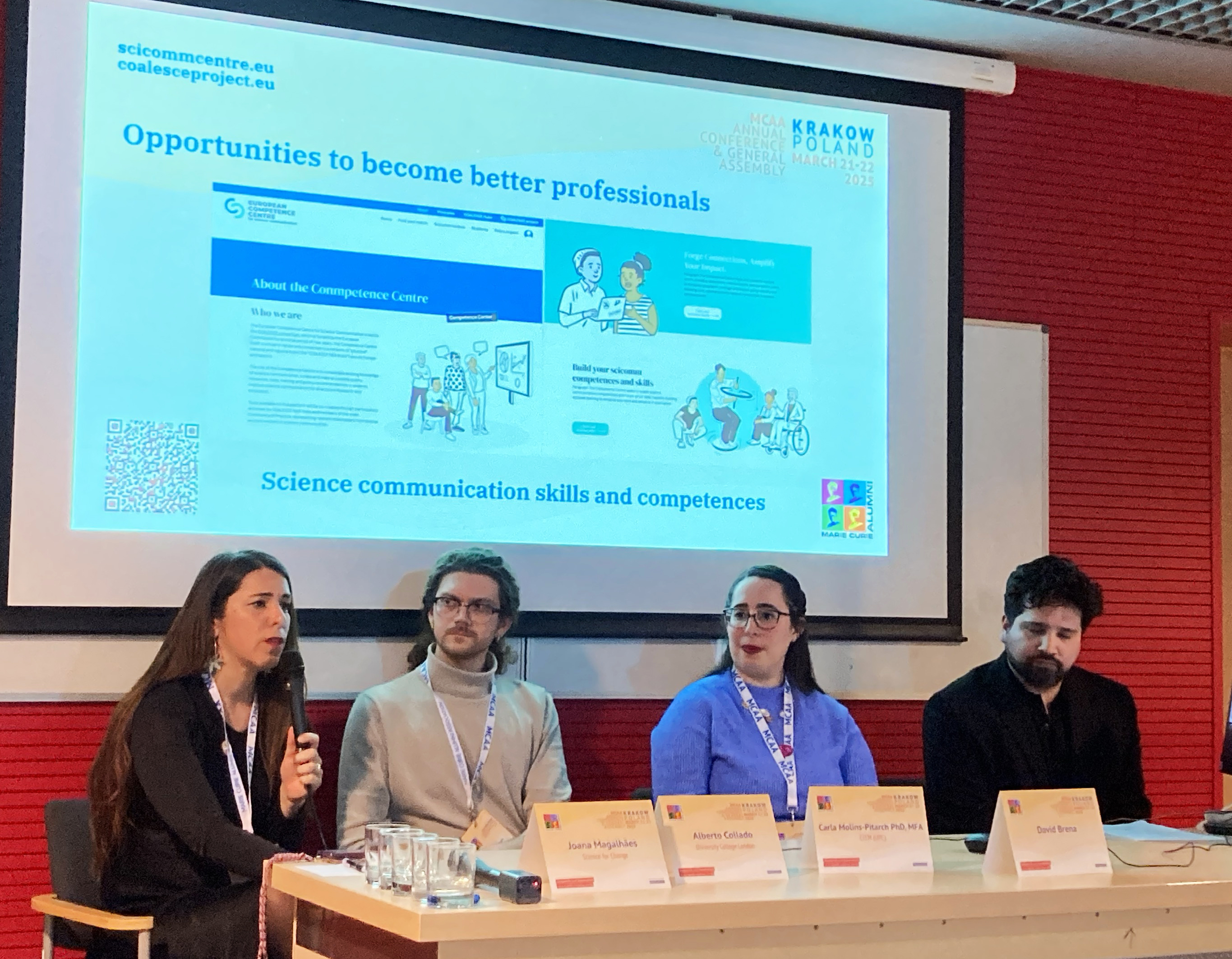
We need much more MSCA!
The overall take-home message is clear and we have been repeating it all along: We need much more MSCA! (in an independent R&I Framework Programme — FP10 — with commensurate budget). Scientific research is the foundation for a competitive, resilient, sustainable and inclusive Europe. This is the only way forward!

